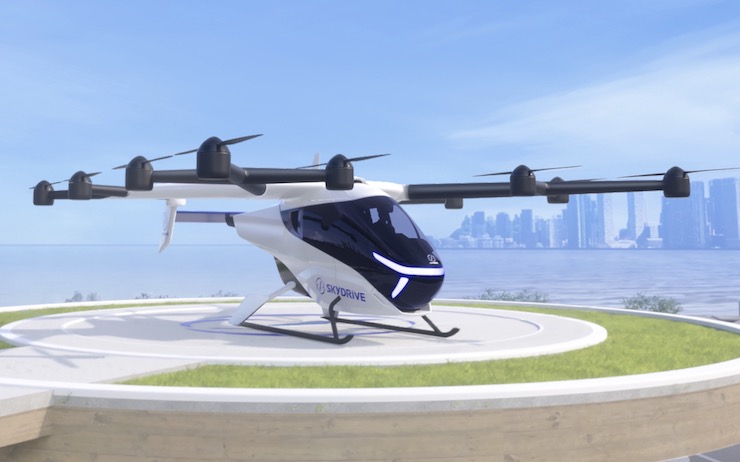SkyDrive is Preparing to Launch Drone Taxis in South Carolina

© skydrive2020.com
Drone taxis are coming to America, and sooner than you think.
A Japanese drone company, Sky Drive, recently established an office in Beaumont, South Carolina and two local airports – one in Columbia, another in Spartanburg – have signed off on the idea. The earliest drone models will likely be two seaters, one for the pilot, another for a passenger, but subsequent models will allow for group transport. The airports want the drones not just to shepherd arriving passengers to their final destinations, but also to transport medical supplies and heavy cargo.
SkyDrive is working closely with the two airports to design the precise specs for their drones, which likely won’t be operational for another two years, officials say.
Engineering design issues aren’t the only possible hitch. The Federal Aviation Administration (FAA), which broadly supports the idea of drone taxis, needs to sign off on the plan. And given the FAA’s track record to date, SkyDrive will face a series of regulatory hurdles before final approval is granted.
Among the key issues: Integrating the new drones into existing air traffic management systems and instituting strict flight safety protocols to limit the possibility not only of collisions with other manned aircraft but also injury and undue interference with residents of local communities. It’s a tall order.
In the short term, all such passenger drone flights will likely be remotely piloted – and may even include a pilot aboard the craft to monitor its flight performance. Approval for a completely autonomous and unmanned passenger drone may well be years off, industry experts say.
But the basic idea for drone taxis – once casually dismissed as a “Jetsonian” fantasy – clearly has legs (or rather, wings). Several other drone companies, including Joby and Uber Air, have received advanced FAA approval to develop a passenger drone, and at least two major airlines, Delta and United, are preparing to invest in the needed infrastructure.
Some industry observers were surprised that SkyDrive chose South Carolina as its base of operations in light of the state’s notorious antipathy toward drones. The Virginia-based Mercatus Center, which publishes an annual scorecard of state support for drone industry development, recently ranked the Palmetto State near the bottom, at #43.
But SkyDrive officials see an opening because South Carolina is home to more than 400 aerospace and aviation companies including Boeing and Lockheed Martin. The state government, they argue, will become more friendly as the benefits from passenger drones become more obvious and major industry players begin backing their initiative.
“I sincerely believe that the vast number of resources available in South Carolina will provide SkyDrive with a substantial platform that enables us to achieve our goals,” SkyDrive CEO Tomohiro Fukuzawa said last week.
But is there really a mass market for passenger drones? Industry skeptics say there isn’t, in fact, except among wealthy elites that can afford to pay for a premium service. SkyDrive officials acknowledge that airport passenger drones probably won’t replace existing airport delivery services any time soon.
But they’re hoping that getting the drones up and running at airports could serve as an important “proof of concept” that might one day lead to their integration into urban mass transit systems.
|